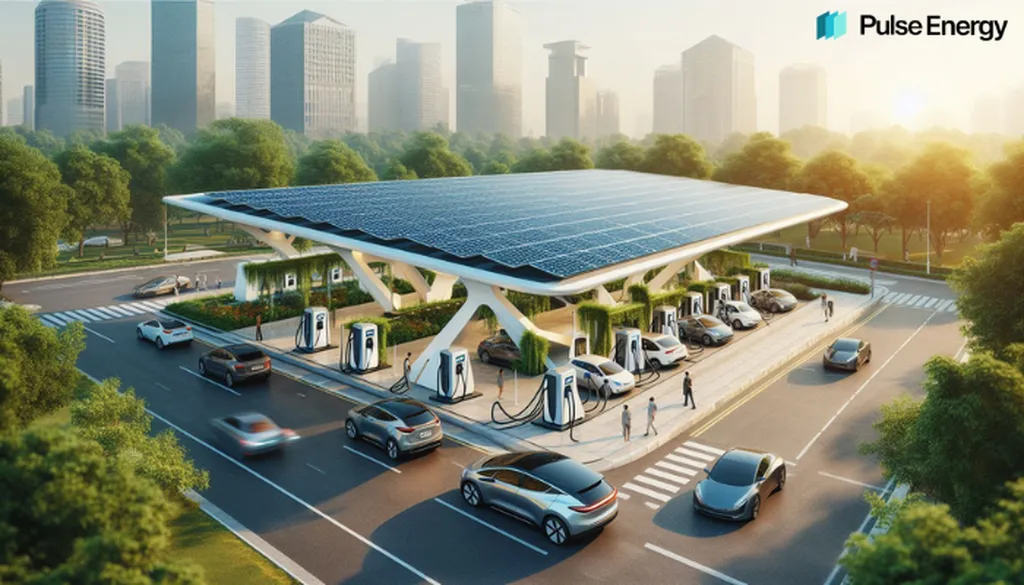In the heart of Delhi, a city where the air hums with the promise of progress and the challenge of change, a groundbreaking study is reshaping the future of electric vehicle (EV) charging infrastructure. Led by Mohd Bilal, a researcher affiliated with the University of Johannesburg and several prestigious Indian institutions, this work delves into the intricate world of renewable energy sources (RES) and battery energy storage systems (BESS) to power the next generation of EVs.
The study, published in the journal “Achievements in Engineering,” addresses critical issues that have long plagued the energy sector: the detrimental effect on the power grid due to the rising demand of EVs, the fluctuating behavior of renewable energy sources, and the inadequacies of classical optimization methodologies. Bilal and his team have tackled these challenges head-on, employing an innovative approach that combines solar photovoltaic (SPV), wind turbine (WT), and BESS to supply green electricity to EV charging stations.
At the heart of this research lies the Artificial Hummingbird Algorithm (AHA), a metaheuristic optimization method that has proven to be more exact and consistent than other optimization techniques such as the Bald Eagle Search Algorithm (BESA), the Salp Swarm Algorithm (SSA), and the Cuckoo Search Algorithm (CSA). “The AHA’s performance was truly remarkable,” Bilal noted. “It reduced the total net present cost (TNPC) by up to 17.9% compared to other algorithms and lowered the levelized cost of energy (LCOE) to $0.3697/kWh, making it a game-changer for the energy sector.”
The financial implications of this study are equally compelling. The SPV/WT/BESS-based EV charging system demonstrated the lowest payback period of just 6.67 years and an impressive 6.8% annualized return on investment (AROI). These findings underscore the commercial viability of integrating renewable energy sources and battery storage systems into EV charging infrastructure.
The study’s novel application of the AHA for optimizing multifaceted, multi-objective renewable energy-based EV charging systems opens new avenues for large-scale rollouts of clean and efficient EV charging solutions. “This research is a significant step forward in our quest for sustainable and cost-effective energy solutions,” Bilal explained. “It not only enhances the reliability and cost-effectiveness of EV charging infrastructure but also makes it more environmentally friendly.”
As the world continues to grapple with the challenges of climate change and energy sustainability, this research offers a beacon of hope. By leveraging the power of artificial intelligence and renewable energy sources, Bilal and his team have paved the way for a future where EVs are not just a mode of transportation but a cornerstone of a greener, more sustainable world.
The implications for the energy sector are profound. The study’s findings could accelerate the adoption of renewable energy sources and battery storage systems, driving down costs and improving the reliability of EV charging infrastructure. This, in turn, could spur the widespread adoption of EVs, reducing greenhouse gas emissions and mitigating the impacts of climate change.
In the words of Bilal, “This is just the beginning. The potential for AI-driven optimization in the energy sector is vast, and we are only scratching the surface. The future of energy is bright, and it is powered by renewables and innovation.”

